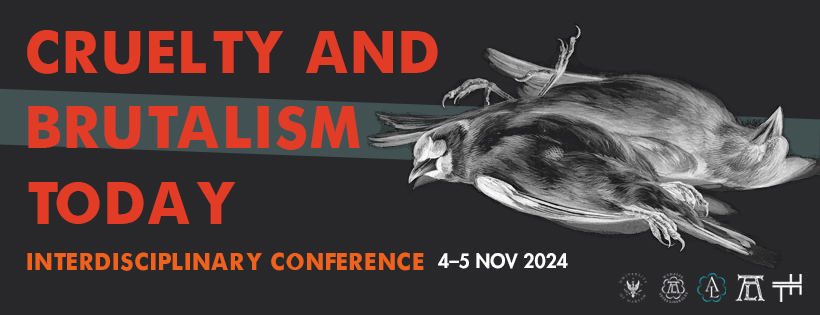Monika Rogowska-Stangret
(University of Bialystok)
Abstract:
In the following paper I wish to examine the case of exhaustion as an illustration of “slow brutalism”, entanglement of “sadistic Superego” and “masochistic Ego” as well as a point of departure to think through the entanglement of oppressive power structures and self-exploitation, that is complicity in oppression. I suggest to view exhaustion in broad terms – not limited to human and its societies (vide Han’s “burnt-out society” (2010)) but instead grasped as operating across scales of bodies-environments and Haraway’s naturecultures (2003). Positioned in this way exhaustion proves to be in line with diagnoses of “our today” conceptualized as times of crises (and – I would argue – exhaustion) of several interlinked layers (or scales): of ways of thinking, imagining, and acting, of humans and societies, of economics and politics, of nature, non-humans, landscapes, so called “resources”, or even planet as a living system. To grasp the nuances of exhaustion and how it might be understood today, I offer a concept of “cross-scale ethics”. As exhaustion happens across scales, we need ways to respond to it that will think through the concept of scale itself. Scale is more and more recognized as one of the key issues to consider today (e.g. Clark 2012, Oppermann 2018, Smith 1992, Zylińska 2014) and is seen not merely as a methodological tool but rather a (politico-) ethico-onto-epistemological (Barad 2007) concept, with “fundamental political, ecological, and ethical implications” (van der Tuin and Verhoeff 2022: 167). How, then – through the phenomenon of exhaustion – scale is generated and to what effects? How scale is generative and to what effects? How can we „do analyses that move through the range of scales of injustice [of slow brutalism], not by pointing out similarities between one place or event and another, but by understanding how those places or events are made through one another” (Barad 2007: 246)? “Cross-scale ethics” is offered here as a feminist, posthumanist response to slow brutalism of exhausted bodies-environments and is developed with reference to arts of noticing (Tsing 2015), entanglement (Barad 2007), and anthropo-de-centering.
Bio:
Monika Rogowska-Stangret, Assistant Professor at the Department of Philosophy, University of Bialystok, philosopher conducting research at the intersection of feminist philosophy, environmental humanities, and critical posthumanism, translator. She was a member of the Management Committee in the European project New Materialism: Networking European Scholarship on “How Matter Comes to Matter” (COST, 2013-2018). She is a recipient of a number of national and international grants and awards, most recently the National Science Center supported her project Anthropocene Ethics. Redefining the Concept of the Human in Posthuman Philosophy (nr 2022/45/B/HS1/00849). She published in, among others, “Feminist Theory” (2020), “Philosophy Today” (2019), “The Minnesota Review: A Journal of Creative and Critical Writing” (2017). She is the author of Ciało – poza innością i tożsamością. Trzy figury ciała w filozofii współczesnej [The Body – Beyond Otherness and Sameness. Three Figures of the Body in Contemporary Philosophy] (Gdańsk 2016, 2019) as well as Być ze świata. Cztery eseje o etyce posthumanistycznej [Be of the World. Four Essays on the Posthuman Ethics] (Gdańsk 2021). She is the editor-in-chief of “Matter: Journal of New Materialist Research”.
